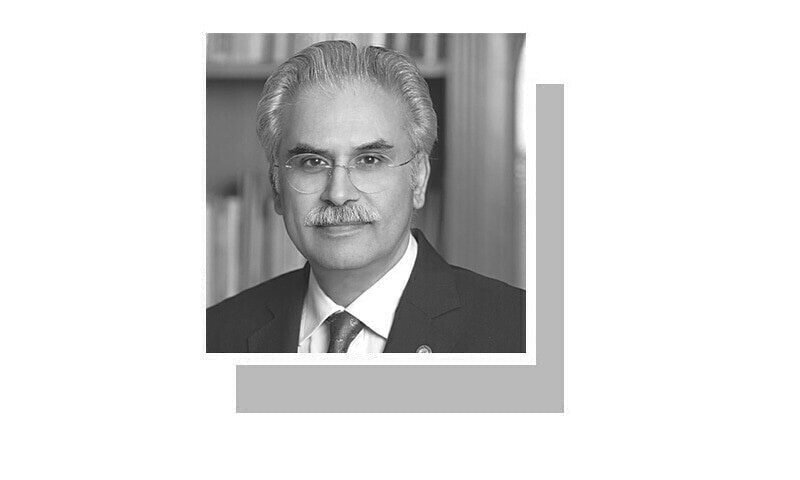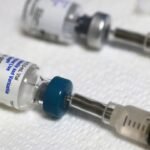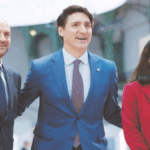As part of a team of researchers we recently published a Paper “Physician accepting bribes from pharmaceutical companies is common and not significantly reduced by an educational intervention: a practical randomized controlled trial in Pakistan”. It was published last week British Medical Journal Global Health. Since most readers do not follow peer-reviewed medical journals and since this issue is of great importance to all of us in Pakistan, I thought of sharing the findings of this research with the readers. Dawn.
Before considering this research, for regular readers of my column, I would refer to another article on these pages titled ‘An Unholy Alliance’ published on December 3, 2021. Current research is actually an evidence-based one. What follows is the scientific proof of what I wrote. The article began as follows: “An unholy alliance working against the interests of patients. There is an ongoing unethical relationship between the pharmaceutical and health technology industry and doctors and other health professionals. I further wrote: “The word ‘immoral’ hardly describes what is happening in the medical market.”
The current research is led by Mashal Khan, based at the London School of Hygiene and Tropical Medicine, my alma mater, and 17 other researchers, most of whom are based at Eco Karachi. A novel method was used whereby data collectors posing as pharmaceutical company sales representatives visited private physicians to observe their engagement with incentive-linked prescriptions. There is a sugar-coated phrase for accepting prescriptions associated with inducements, and often demanding bribes to prescribe certain drugs to patients regardless of their need.
Collusion between doctors and industry is globally known, widespread and deeply entrenched.
In this study, 419 medical doctors, mostly general practitioners, providing primary health care in their private clinics in Karachi, were enrolled with their consent to participate in the study, which means that they Agreed to an ‘unannounced evaluation’ of the exercise. These physicians were randomly assigned to “intervention” and “control” groups, 210 to the former and 209 to the latter. Individuals in the intervention group were systematically engaged in multifaceted educational interventions that informed them about issues associated with pharmaceutical privileges. They participated in a well-designed educational seminar on moral prescriptions followed by six weeks of reinforcement messages and participated in a competition to design related slogans.
In the control group they were given a passive or placebo seminar that did not include unethical prescribing as a topic of discussion. Three months after these seminars and reinforcement interventions, doctors were visited by secret ‘pharmaceutical company representatives’. The primary outcome was the proportion of participants who were willing to accept incentives in exchange for the developed drug. Once all the data was collected, the results were disappointing.
Among those in the control group who took part, 41.9pc of doctors agreed to accept incentives in exchange for developed drugs, compared with 32.3pc in the intervention group. The difference is not statistically significant, which means that including physicians and simply informing them of pharmaceutical incentive problems does not change their practices.
The majority of private doctors who agreed to accept incentives for promoted drugs chose financial incentives, such as cash or check payments, followed by clinical equipment or renovations. Interestingly, in many cases those who refused to accept concessions were in fact already fully committed to concession agreements with other pharmaceutical companies.
This first study to assess collusion between physicians and pharmaceutical company representatives demonstrates that the practice is surprisingly widespread and suggests that only through educational intervention can However, there is no possibility of reduction.
Research has clearly shown but by using a scientific method and calculating the results according to statistics. However, the trend of collusion between doctors and industry is globally known, widespread and deeply embedded.
To understand the scale of the problem, in 2020 Journal of the American Medical Association reported that 26 pharmaceutical companies paid nearly $33 billion in fines between 2003 and 2016 in the United States. These fines were slapped by US authorities for a variety of illegal activities, such as providing kickbacks and bribes, knowingly providing pharmacies with adulterated or contaminated drugs, and marketing drugs for unapproved uses.
Closer to home, the forms and shapes medical marketing takes have become so obnoxious, pervasive and harmful that the less said the better. The so-called medical conferences in Pakistan are mainly attracted by the medical community for the luxury and glamour, the food and the winning, and the pharmaceutical companies happily paying huge bills. Patients and their families pay through their noses for unaffordable prices for drugs, many times fraudulently prescribed. Poor people suffer financial and physical consequences.
Now that medicine prices have been deregulated in Pakistan, they have skyrocketed. Marketing budgets will increase further, competition to sell will become tougher and new reductions will be seen in unethical marketing practices by companies.
This is the fundamental paradox of the medical profession. Greed has replaced care. The real moral of this research story is that no amount of education and research will make a difference because medical practitioners are part of a society in deep moral crisis.
What is to be done about this seemingly complex and intractable problem that is systemically embedded in unbridled corporate capitalism? All countries face this threat, the difference is scale and shamelessness. A cocktail of measures – educational, administrative, regulatory – needs to be taken and interventions need to be made simultaneously and consistently. Ongoing research, as cited above, needs to be encouraged and pursued. And, there is a need to promote lifestyle medicine and preventive health care, which requires minimal use of pharmaceuticals.
The author is a former Minister of Health, currently a Professor of Health Systems and Population Health at Shefa Tamer-Milit University.
Published in Dawn, January 24, 2025












































